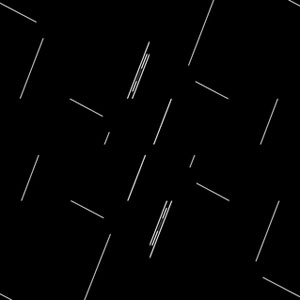Nosaj Thing Home
Given that it’s been well over three years since LA producer Jason Chung (a.k.a. Nosaj […]

Given that it’s been well over three years since LA producer Jason Chung (a.k.a. Nosaj Thing) released his excellent debut LP, Drift, it’s surprising how understated Home is. One might have suspected that such a lengthy break was the result of some sort of major stylistic upheaval, but in truth, Home retreads similar sonic ground as its predecessor, even stripping back much of that album’s ambition and eclecticism. The result is a record that—apart from a couple of notable exceptions—has much less capacity to surprise; furthermore, it’s an LP which prefers to settle into a mood, as opposed to deftly hopping between styles and textures in the way that Drift did.
Fortunately, what Chung does on this second album, he does exceptionally well. With less curveball moments to grab the headlines, it’s Nosaj Thing’s remarkable compositional skill that steals the show, particularly his ability to draw nostalgia out of minimal chord progressions and simple, brooding basslines, and his talent for creating genuinely emotive, humanized tones out of muted synths and glitchy beats. Tracks like “Safe,” with its lazily drifting pads and breathy vocal noises, or the richly melodic “Tell” are perfectly formed downtempo vignettes that each seem designed to encompass a moment of longing or loneliness. And as it was on his debut, Chung’s production is utterly flawless and pristine throughout Home—each individual sound seems to have been finely honed and placed within the mix with pinpoint precision.
Unlike last time, Chung recruits guest vocalists for two tracks on Home: “Try,” which features fellow California resident Toro Y Moi, and lead single “Eclipse/Blue,” which sees Chung collaborating with Blonde Redhead vocalist Kazu Makino. Both are executed well, and sit amongst the otherwise electronic timbres of the record with surprising subtlety, but of the two, it’s the latter that impresses most. While “Try” comes across pretty much as one would expect it to—an amalgamation of Toro Y Moi’s lo-fi synth pop and Chung’s minimal hip-hop glitches—Makino’s fragile contribution turns “Eclipse/Blue” into something with surprising depth that also amalgamates perfectly with the lonesome mood that Chung sets throughout the LP.
These moments aside, however, Home‘s biggest problem is that it can easily drift by almost unnoticed. While Chung compiles the elements of each track brilliantly, there’s little content that hasn’t been heard before, and too often, one can trace the composition of a song back to some obvious influences—the glitchy percussion of ambient Aphex Twin, the delicate instrumentation of early Four Tet, and the melodic pads of Boards of Canada all loom large. It’s only during closing track “Light #3″—which calls back to Chung’s debut both with its title and its slightly grittier production—that Home really feels like it kicks up a gear. It’s a welcome change of pace, but by that point, the song merely seems to emphasize that no matter how pleasant a journey the album has been, it could have used a few more surprises along the way.

